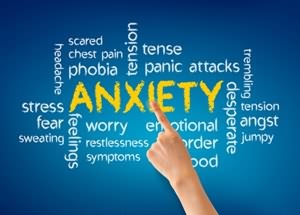There are several mental health conditions and sometimes people they think they are all more or less the same. In this blog post we want to find out the differences and similarities between all these diseases. We have the following mental health problems starting with: Anxiety, depression, bipolar disorder, schizophrenia, and Parkinson’s disease are distinct mental health conditions and neurological disorders, each with unique characteristics, although they may share some overlapping symptoms. The differences and similarities between these conditions lie in their symptoms, causes, and treatments, including the medications used for management.
Mental Health disseases:
Anxiety:
Symptoms:
- Excessive Worry: Persistent and excessive worry or fear.
- Physical Symptoms: Palpitations, sweating, trembling, and shortness of breath.
- Phobias: Intense fear or avoidance of specific objects or situations.
Medications:
- Selective Serotonin Reuptake Inhibitors (SSRIs): (e.g., Sertraline, Escitalopram)
- Benzodiazepines: (e.g., Clonazepam, Diazepam)
- Buspirone: (an anti-anxiety medication e.g. Buspar)
Depression:
Symptoms:
- Persistent Sadness: Prolonged feelings of sadness, hopelessness, and low mood.
- Loss of Interest: Diminished interest or pleasure in activities once enjoyed.
- Fatigue: Lack of energy and motivation.
Medications:
- SSRIs: (e.g., Fluoxetine, Sertraline)
- Serotonin-Norepinephrine Reuptake Inhibitors (SNRIs): (e.g., Venlafaxine, Duloxetine)
- Tricyclic Antidepressants (TCAs): (e.g., Amitriptyline, Nortriptyline)
Bipolar Disorder:
Symptoms:
- Manic Episodes: Periods of elevated mood, increased energy, and impulsive behavior.
- Depressive Episodes: Similar symptoms to depression.
Medications:
- Mood Stabilizers: (e.g., Lithium, Lamotrigine)
- Antipsychotics: (e.g., Olanzapine, Quetiapine)
- Antidepressants: (used cautiously in combination with mood stabilizers)
Schizophrenia:
Symptoms:
- Hallucinations: Hearing or seeing things that aren’t real.
- Delusions: Firmly held false beliefs despite evidence to the contrary.
- Disorganized Speech: Difficulty organizing thoughts and speaking coherently.
- Antipsychotics: Typical (e.g., Haloperidol) and atypical (e.g., Risperidone, Aripiprazole)
Parkinson’s Disease:
Symptoms:
- Motor Symptoms: Tremors, stiffness, slowness of movement.
- Non-Motor Symptoms: Depression, anxiety, cognitive changes.
Medications:
- Levodopa: Converts to dopamine, addressing dopamine deficiency.
- Dopamine Agonists: Mimic dopamine effects.
- MAO-B Inhibitors: Slow down dopamine breakdown.
Conclusion:
While these conditions differ in their specific symptoms and underlying causes, some may co-occur or share common symptoms, leading to misdiagnosis or overlapping treatment approaches. Medications for these conditions aim to address specific neurotransmitter imbalances or symptoms unique to each disorder. It’s crucial for healthcare professionals to conduct thorough evaluations to accurately diagnose and tailor treatment plans that best suit the individual’s needs, considering potential medication interactions and side effects. Additionally, a comprehensive approach involving medication, therapy, lifestyle modifications, and support networks is often beneficial in managing these complex conditions.
